Automated transcript
We have Camilla in the room, and she will join the stage right in two seconds. But first, let me introduce you. To her. Camila is a Mexican service design practitioner based in Switzerland with a focus on health. Camila has a background in industrial design from Z HDK, and a Master's in service design from HSLU completed in 2024.
With over eight years of multidisciplinary experience from ux, ui, and service design to strategy, communication, and even advent, even leadership, Camila brings a rich people-centered perspective to every project. Her work is driven by a deep passion for healthcare, especially women's and children health.
Her master's thesis on breast cancer awareness inspired her current ambitions to launch a startup focused on empowering women through self-care and preventive health tools. Obviously there is so much more to say about Camilla. Just for an example, she was also one of the lovely people behind the service design network, young talent.
She's doing a lot for the community. She's also a service design practitioner professionally in a startup. I'm sure today will be a beautiful day with Camila. And so now it's my pleasure to welcome on the stage. Camila, welcome.
Hi Daniele. Thank you so much for the nice welcoming. It's a pleasure to be here.
Today I want to take you on a journey, not just any journey, but one field with curiosity, challenge, and hope. A journey about finding meaning in what we create about the messy and beautiful process of persistence and about learning to trust ourselves when the path isn't clear.
And it all start with a simple question, how can design truly help people? I am Camilla, and I want to take you back where this story began some years ago. It wasn't a certain lightning bolt of inspiration, but quite a seed planted in the heart, in my mind, through a personal experience and family influence.
And yeah, it was about making design matter, about making it human. So let's start from where it began. I am originally from Mexico where I grew surrounded by two worlds that shaped my view of design and care. My dad is an architect always with a pencil or a model in a hand sketching spaces, building ideas, and dreaming about things.
Fitting together. And on the other side, I have my mom, she's a dentist, someone who spends her days directly helping people dealing with pain, healing, and comfort. So from a really young age, I saw that balance between creativity and practicality, empathy and structure. I learned that design isn't just about making things look good, but it's about making life better.
That's why I chose to study industrial design as my field of study. I wanted to create something tangible, something that people could hold, use, feel, connect, but very quickly I saw a problem. Much of the design I encounter was focused on surface. You can. I think the same as me, but shiny chairs, stylist gadgets, but they often miss the deeper human needs.
My mom, I will remember, she will come home frustrated about the dental tools she used every day, how ward uncomfortable, hard to clean. They were. So yeah, there the designs were without thinking about the people using them or the patients experiencing them. So that's what was my clear realization of my point of realization that I want to design for people for health and for empathy.
Let's go back to eight years ago when I was 20, I found a small lump in my breast. Thankfully, it turned out to be nothing serious, but the experience stayed with me. Of course, there was a lot of fear, confusion, and silence around breast health, and it made me realize how many young women had never checked themself.
They didn't know they should, or they were simply uncomfortable talking about it. I saw it was a taboo in my culture. I started talking with my female friends, mom, sister, grandmothers, and some had never, ever heard of breast self exams. Schools didn't teach it. Families were avoiding the topic, so I.
That moment was the seat for Te Toka. Of course, at that time I didn't have the name for it, but I knew I wanted to design something that will raise awareness and empower young women and break the silence. So it was a tiny spark, but it never left me and. A year later, I applied for an exchange program. My dream was to go to Germany, but Trich accepted me first.
And I remember Googling Switzerland and I was like, oh, it looks green, the lake the cheese, the cows. Okay, let's go. But yeah, of course, certainly I was a young Latina and non eu. Student navigating a new language culture and a new completely system, and I had to find my way out. Often I fell alone, but I pushed through it.
I finished my bachelor at Zurich University of the Arts and discovered my true passion wa. That was research, empathy and service design. For my bachelor thesis, I didn't focus on products, I focus on feelings. So my topic was dental fear. So I made my mom really happy because I was like, finally, I can interview you.
Tell me your problems. And I was focusing on children. I interview children between five and 10 years. I asked them what they were scared about. I asked them to draw them their last experience. What were the tiny details, and if it was the sound, the smell, the word, so I could see where can I change the whole experience?
And that research taught me that. Something really profound. That design isn't just about objects, it's about emotion, it's about care, and it's about people. Later on, I took one gap year in between because I didn't know what to study. I knew I wanted something to go into. Research still design, but then yeah, I found service design at Halo in Erne, Switzerland.
So I applied for the master program and I remember that for applying, they asked me to apply with the thesis topic already, so I was like. It's time for me to bring the toka. So after six years after that first seed, the idea was ready to grow. I wanted to focus on breast awareness for young women.
I didn't want to do any medical device, not an app, just something human, human-centered and preventive awareness. So I spent two years interviewing women, designing mock-ups, researching health behaviors, building prototypes, and seeking for partners. And many ed me telling me it already exists. This won't go anywhere.
This is not new. You should change your topic thesis. But I was like, no. I need to keep going because I believe, and I found one person who believed two. Then it became my sponsor, and then I was like, okay, sometimes you don't need everyone support. You just need one person to say, yes, I see this problem.
Two, after my bachelor I saw the struggle of finding a job in Switzerland. So during my master my master program, after graduating from the Bachelor, I was like, okay, I need to start looking for a job, a part-time job. But Switzerland seemed to be impossible. I applied so many times where I go. No answers.
Like it was always like a no because of the nationality. So I was like, okay, I refuse to stop learning and growing. I will join for volunteer projects. So for the past year and a half, I have been leading the marketing for a TH Entrepreneur Club. Thank you. Challenge. It's on pay, but incredibly. It was rewarding.
It has been one of my best experiences. INCU brings students together to solve a real world problem in just five days inside Ala Cube. I know it sounds crazy, but it works. A lot of service design going on inside the cube, A lot of design thinking. So for me it was something incredible. For me it meant learning how to communicate clearly, motivate others.
Organize complex task and trust creativity. And recently I was part of the service design network, young talent board, and I was leading the partnership team. And of course, during design studies, no one taught me how to talk business, how to pitch ideas. So I learned by doing it. So the last six months and with my team of partnerships, I remember we were like call after call proposal after proposal, trying to invite more university companies to be part of the SDN John Talent Board event.
And at the end something beautiful happened. I help bring service design to Mexico. We organized a three day event back home connecting educators, designers, students, and thinkers and people interested in service design. And of course it was something emotional to see how Mexico has potential. I saw my country growing, changing, and full of energy and ideas, and it was really nice to be part of it.
And today after my master's program, that was one year ago when I was graduating, I was almost giving up. I was ready to go back to Mexico. But then a miracle happened. I joined I joined Artis. It's a Swiss startup. They are developing a device for cancer detection. And this job sits at intersection of everything I care about before, right?
Health, innovation, and purpose. And working at the startup is intense, fast paced, challenging, and constantly evolving. But every experience I have had from thesis to volunteer roles prepare me. For what I'm doing now, I bring empathy to every design. I use research to bring structure. I communicate with users and stakeholders in a human way.
And I'm learning every day and I'm grateful for the opportunity. And of course, Ted Toca isn't over. The is not just a project, but it became my baby for two years and still. I promised to myself that this wouldn't be just another university assignment. I told to myself, this won't be another PDF or this won't be another thesis in the library archive from universities.
So yeah, even when live started to get busy now or progress feels slows and even when no one is seeing it now. I'm still working on it. I'm still making mock mockups, doing research, talking to partners, shaping it into something real, and I hope to share it with all of you, something in a close future because I know this can help women, and I know this can help to save lives, so I won't let it go.
What I have learned from all these experiences. I know Daniele told me to share three insights, but for me it was really hard to find three insights and I got five. And the first insight that I have for all of you is find your personal why. Something I have learned. Is that you need to find your why, your real why the emotional one deep in your gut that keeps you going when everything else is falling apart.
My why was born from fear, yes, but it grew into a purpose. The moment I was 20 and I was scared and uncertain and I was really negative. It stayed with me and became a mission afterwards. I will never stop caring about. So your Y doesn't have to be big, but it has to be yours. And when the process gets hard, because it will, your y will carry you forward.
The second insight. Which I love, and I'm saying it almost every day to a lot of friends, is a honeymoon phase. Ends everything exciting, has a honeymoon phase, new projects, new cities, new jobs, even relationships. But eventually that shine fades. What's left is discomfort, frustration, doubt, and that's totally normal.
The real question is, do you still want to show up? When I was working in the Toka, I hit a lot of the walls. I doubted myself so many times. Also, when looking for a job, I compared myself to others. I felt lost more than once, but I kept showing up. I was remembering what sparked me in the first place, and.
Sometimes are like the tiny reminders, like a message from a friend or a note from a user or even the small prototype that starts to work. So those mar those moments matter to bring the fire up again. The third insight is trust the process, and maybe this one is really cliche and a lot of you have heard about it, but.
You need to keep going there. I, there were days that I was like, this is going nowhere. I will never get the job. I'm not good enough. I'm going back to Mexico. I'm so late with my thesis, like I will just show up with something. But something I learned is that growth isn't linear and you might take five wrong turns and still end up where you need to be.
When I met my sponsor was because I sent so many linking messages, like tons, and until one day that person was like, let's go for lunch. I didn't learn about business skills until I was volunteering, and yeah, I found myself slowly because I refuse to give up. But yeah, I chose the process even when it was slow, confusing, or invisible.
Especially then I was like, I need to trust that everything is working on. The fourth step is grow happens in community, and of course all this, I never did it by my own. Every step I had people around me. Mentors, teammates, friends, volunteers, strangers who believe in me for no reason, which I'm really thankful, but you need people around you and you need to give help and ask for it.
And at the end, collaboration is building strength and community brings courage. And the last one is that there's one last thing I. Always carry quite quietly with me, but is fake it till you make it. And it's I know it sounds superficial, but to me it means something different. For me, it means that show up before you're ready.
Say yes when you're scared, believing the version of yourself that still is growing. When I started a bachelor in Zurich, everything was in German and. I came to Switzerland with zero German. Like literally, I only knew how to say Hi, I'm Camilla, but I told myself, okay, I'll figure it out. I'll learn by doing it.
I'll speak with my hands if I have to. And somehow I made it work. And yeah, also in volunteer roles. I didn't always feel like I belonged, but I acted like I did. I listened, I adapted, I asked questions, and over time. It became real. So I wasn't faking it anymore. I was growing. And yeah, it's not about pretending, but it's about taking the courage of doing it.
The courage to start as a beginner to raise your hand when you need help to step into the space you want to live in, because most of us, we are still figuring out as we go. Say yes to everything. Fake it till you can make it, because it truly works. And yeah, to close. I want to say that, of course I'm still learning.
I'm still failing sometimes, still figuring out, but I believe in the long run, in showing up, in the power of design, in care, in persistence, everything will work out. If right now you are in that messy middle please keep going because as I said before, the honeymoon phase is always over, but the real love, the real purpose starts when you decide to keep showing up.
Anyway, thank you.
Thank you so much. The honeymoon phase thing is one that I will definitely steal from you. And obviously we'll quote you on that. With the new students in the Master's of Design program from HSLU, we have a lot of questions. So I'm gonna start directly with these questions. We have six minutes to answer them, so we will be fast, but very efficient.
First of all, there is a Juliana who asks Camia. Thank you so much for your talk. It's more a personal question, but what do you wish someone had told you when you were self studying outside of the five tips that you may be shared?
Good question. I will say it's okay to procrastinate. Of course a lot of professors will say, don't say that Camilla, but it's okay to take your time and you don't know what you're doing.
So if you feel lost, take the day off. Go for a run. Creativity. When we are designers, sometimes it's really hard to come. So just take a moment and then it will come and you will able to continue.
Thank you so much. We have a lady we built on that question and ask, thanks for sharing your experiences.
They were really inspiring. How do you stay patient and motivated? When results take time after the honeymoon, how do you manage?
This is a good question actually. Right now at work, when I started working I had this moment of, from being a student and having my own project, and I saw that everything was like going faster because I was having several hats, right?
I was a designer. The manager, the CEO of my project and the one deciding everything. And now at work, I'm the UX UI designer and I see everything in slow motion. I think for me now it's okay, I need to stay patient because now I work in a big group and I'm not the one deciding if this is going forward, but at the end I trust that.
They will take the idea or they will try to implement it or, yeah. I hope I was answering your question.
Thank you so much. We have another question from Juliana who asks. Also, are there any tools or frameworks you rarely used as a student, but now you use all the times? Is there anything that you overlooked in your studies and now it's this is the key?
Honestly I feel there were a lot of design tools. I don't know if with design tools, you mean with software or? What type of tools, but when it comes to software, for example, I never learned how to use Adobe programs, right? It was until I was volunteering that I was like, okay, I now I need to learn how to use them to apply them.
And this helped me so much of words for my thesis, for my whole master for work now. So I will say be update, update yourself on design tools, try them, even if it's once. Sometimes, of course, it's annoying to start from zero and learn a new program, but now for example, I use Figma all the time when before I use not to use it at all.
Like when I was starting industrial design, I never use it. And now. Slowly. I started using it and now I feel really good with it. So I will say just try to keep update with the design tools that are going and yeah, the updates,
thank you so much. I believe there is something beautiful in what you say with the kind of stay updated with the design tools in general because it's always changing.
A good tip is, look at the job market. What do people say as expectations? And then you have time while during your studies to learn these tools that they expect you to have. And maybe these tools are not taught in the program, but still you can get there. Exactly. You are so efficient with the time that I will try to put one more question in it.
Let's try it. A personal question is how did you manage that transition? Is there a tip that you will give to people in the transition from learning to being a service design practitioner, professional service design practitioner as you are? Is there any networking tip? Anything that you say this worked to make it easier to get the job?
Oof. That's a hard question. Honestly, I think once after graduating from the Bachelor, I hit so many walls because of course I was not from here. I didn't have a big network at the time. So I started joining a lot of events. Try to meet people in the field. Try to, yeah. Connect. I was al also like sending LinkedIn messages bit stocker to other students around Switzerland that were studying another design studying, and I was trying to keep, yeah, like the connections and always saying oh, if you know something please recommend me, can, I was trying to build my network somehow, and I think this is really important and we miss it a lot. In general, I will say, not only in design, but I will say in design it's really hard, but try to go to events sometimes.
I know. It's exhausting to be there and talk and say who you are, but you never know. Go to the fair like work fairs and see what they have and don't be shy of asking your friends around you or the girl you just met and they told you like, oh, my husband is working in design. Don't be afraid of saying Hey, I'm looking for a job.
Please. If your husband knows about something, let me know and try to stay connected. So that will be another advice.
Beautiful. Hey, thank you so much Camilla for all your insights, for your story and all the bonus information and the answers to the bonus question. Before you leave and we leave I would like to just show a few of the comments from the people that joined and that we're very happy to have you here today.
Obviously, these are just a few there is obviously way more things that are happening. But this are just a few that I wanted to show as this was a very inspirational moment. Thank you so much. And this service design Week continues in still this lightning way. Tomorrow we will be speaking around service design needs, stakeholder needs.
Yes. Harken. I'm sure I mispronounced that name, but it's okay. And again, it's been a big pleasure to have you here. Camilla. So applause in the chat for you obviously, and a big thank you to you for accepting the invitation.
Thank you, Daniele, for organizing it and for the invitation.
Ciao.
This transcript was generated automatically using Descript. It wasn't reviewed and therefore contains some creative sentences and mistakes.


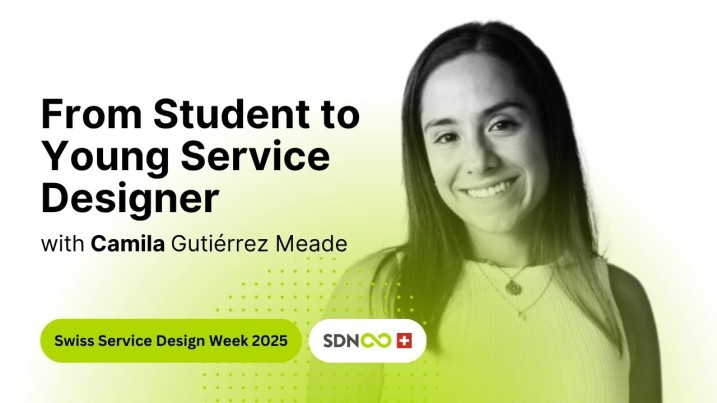
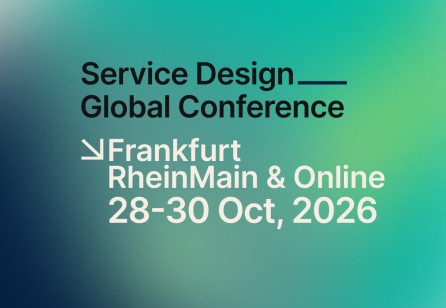
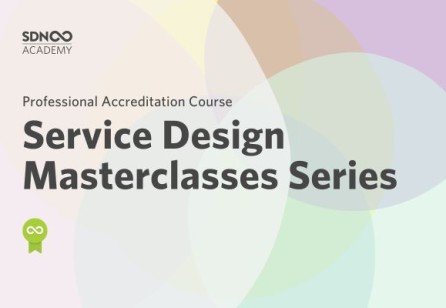
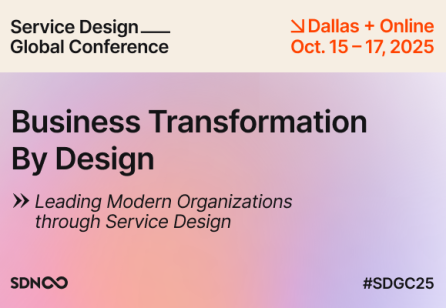
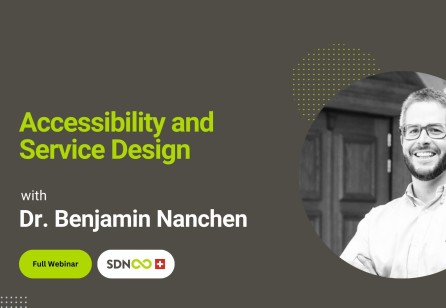

Share your thoughts
0 RepliesPlease login to comment